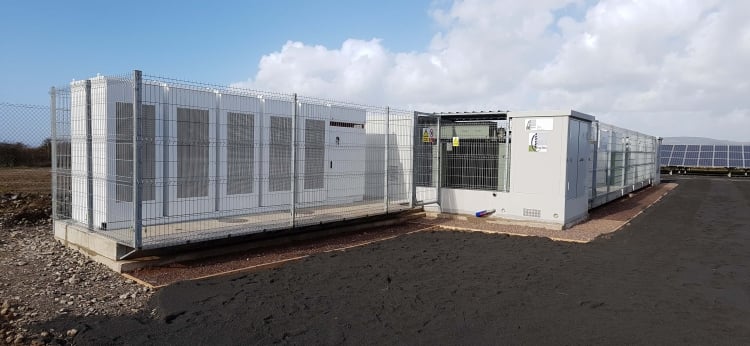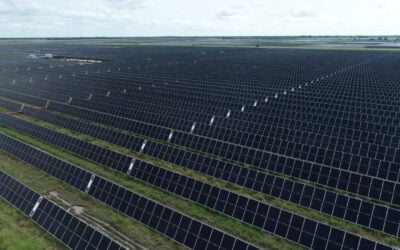
UK-headquartered distributed energy services provider Kiwi Power has made its first official expansion into the US, operating in the ERCOT market of Texas and planning a further step into the PJM Interconnection service area.
Offering flexibility services including battery storage optimisation and demand response through its proprietary virtual power plant (VPP) software, the company’s first client is ENGIE North America, building on an existing relationship – France-headquartered multinational utility ENGIE took a stake in Kiwi Power in 2018.
Enjoy 12 months of exclusive analysis
- Regular insight and analysis of the industry’s biggest developments
- In-depth interviews with the industry’s leading figures
- Annual digital subscription to the PV Tech Power journal
- Discounts on Solar Media’s portfolio of events, in-person and virtual
From beginnings as a demand response aggregator in the UK and developing its “technology and expertise” on the country’s grid, chief commercial officer Stephan Marty said that Kiwi has also in recent years gained experience working in 10 European countries. The UK grid is considered among the world’s most advanced, with the electricity supply value chain having been broken up and deregulated 30 years ago.
This left it a ripe space for innovation and allowed third parties such as Kiwi and rivals Open Energi, Limejump and others to supply flexibility services to help balance the network as shares of renewable energy increased.
His colleague, product manager Nima Tabatabai told Energy-Storage.news in a previous interview that Kiwi has a platform that “can handle any type of flexibility assets, so for example it can manage demand response, generation assets, battery storage assets, it’s agnostic to the technology”.
“It’s basically a platform for connecting any type of distributed energy resource and allowing it to respond to a signal or price or whatever you want it to respond to,” Tabatabai said.
Kiwi and ENGIE North America started a price arbitrage pilot project last year in the Electricity Reliability Council of Texas (ERCOT) market, which is unregulated and supplies more than 90% of the US state’s electric load. The Kiwi platform lets distributed energy resources and demand response assets to follow price signals in real-time, through analytics and market signal integration.
As has been seen from numerous energy storage developers spying the opportunity for grid-balancing services and energy trading in Texas, Kiwi and ENGIE will also bid into the ERCOT ancillary grid services markets. In addition to a planned future move to do the same in the PJM Interconnection area across more than 10 US states, Kiwi Power is also now working in Canada, teaming up with utility Lakeland Power in Ontario.
Lakeland Holdings chief operating officer Vince Kulchycki said that, enabled by its relationship with Kiwi Power, his company is working “very closely with the Independent System Operator (IESO, which operates the grid) to create economic solutions for our future energy flexibility needs”.
‘Value is migrating away from supply of power, toward the supply of flexibility’
“As renewable generation, energy storage and distributed energy resources continue to penetrate global electric grids, value is migrating away from the supply of power and toward the supply of flexibility. Kiwi Power is thrilled to now be serving clients in the United States and Canada, providing each with the confidence they need to participate in this new energy world through our technology, expertise and low-barrier-to-entry commercial model,” Kiwi Power CEO Jay Zoellner said.
Zoellner was among the industry voices to put forward statements to Energy-Storage.news on one of the biggest topics of today in US energy storage – and in the US grid in general – FERC Order 841. The Order from the Federal regulator, FERC, means that distributed energy storage systems will be allowed to participate in wholesale markets in those parts of the US where the distribution grid is operated by Regional Transmission Organisations (RTOs) and Independent System Operators (ISOs).
Zoellner said in his statement that Order 841 would “dramatically shift value in the energy system away from supply and towards flexibility,” and that it was a “necessary decision for the US to efficiently accommodate its growing renewable base by providing open flexibility markets”.
“We have been looking for this decision as an important catalyst for our entry into the US because this new capability creates new paths to market”.
Read Jay Zoellner’s statement on FERC Order 841 along with reactions from a wide range of other stakeholders, in our news story, published yesterday.
This article has been amended from its original form to reflect that ENGIE bought a stake in Kiwi Power but is not its majority owner, as was first stated.






